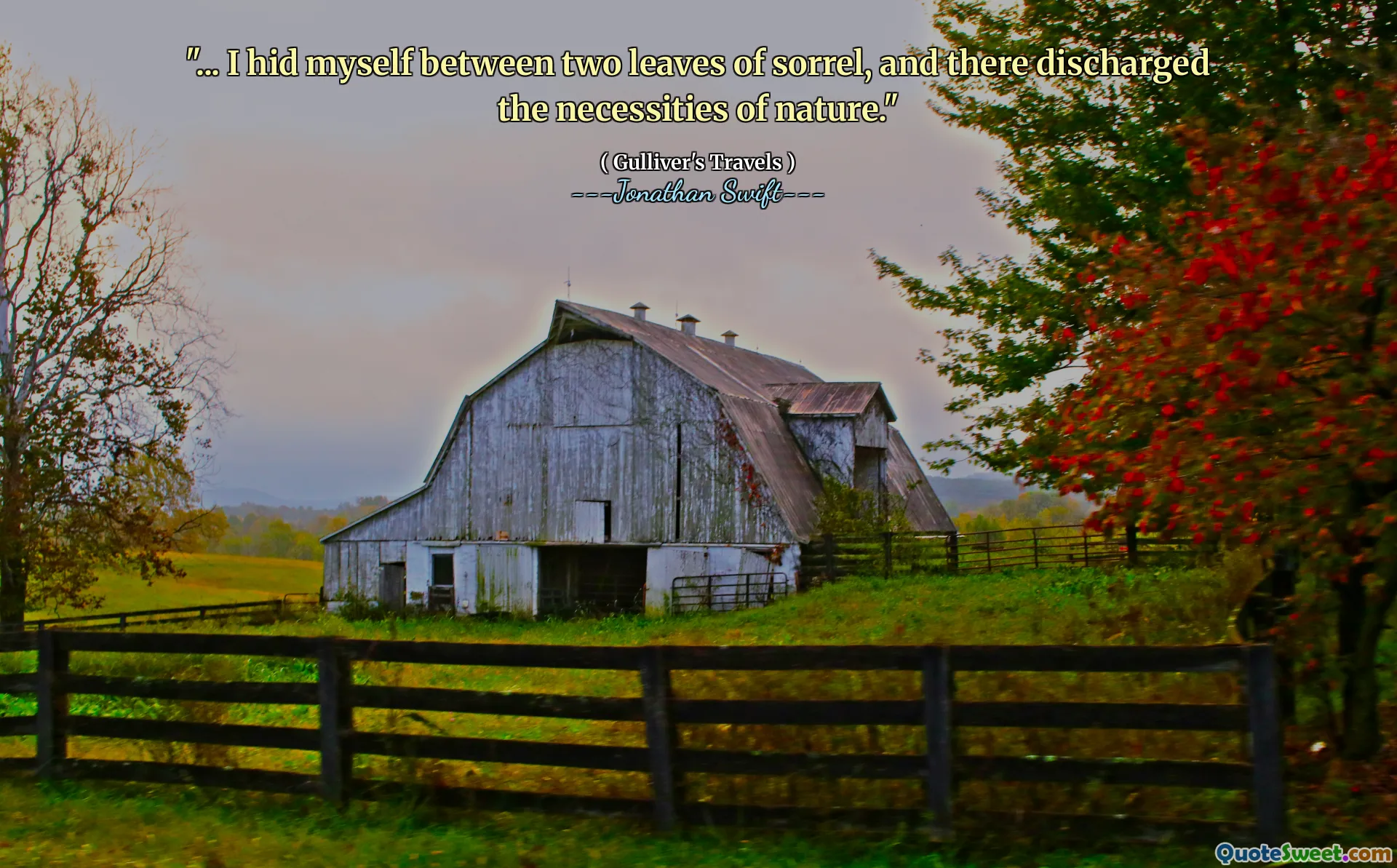
"... I hid myself between two leaves of sorrel, and there discharged the necessities of nature."
This quote from Jonathan Swift's "Gulliver's Travels" encapsulates a candid and earthy moment that starkly contrasts the vast and elaborate adventures depicted in the novel. At first glance, it might seem a trivial or even humorous reference to a natural bodily function, but on a deeper level, it highlights the fundamental human experiences that underlie all grand narratives and explorations. No matter the grandeur of one's journey, the basic necessities and vulnerabilities remain universal. This moment of needing to find privacy amid nature symbolizes both a humbling human experience and a connection to the natural world, reminding readers of our shared physicality. Swift's use of such a grounded, almost comical scene also serves to humanize the protagonist, bridging the gap between the extraordinary and the ordinary. It subtly critiques the pretensions of society and evolution, grounding lofty tales in the reality of human nature. Furthermore, the imagery of hiding "between two leaves of sorrel" evokes a sense of insignificance and solitude, as though the character becomes one with nature, retreating from the chaos or judgment of civilization to attend to private needs. This resonates as a moment of vulnerability and respite in a turbulent journey, reflecting Swift’s masterful blending of satire, humor, and profound human truth. Through this simple act, the narrative reaffirms a profound insight: regardless of status, intellect, or circumstance, certain experiences are universally shared, binding humanity with nature inextricably.






